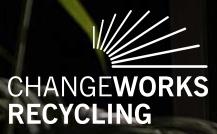 Add My Company
Add My Company
Sign In

The Scottish Government recently unveiled plans for the introduction of a new Circular Economy Bill as part of its aim of achieving net-zero carbon emissions by 2045. This bill aims to change attitudes towards waste and tackle Scotland’s ‘throwaway culture.’
In a circular economy products, services and systems are designed to maximise their value and minimise their waste. As four-fifths of Scotland’s carbon footprint comes from products and materials tackling waste is the most significant opportunity towards addressing the climate emergency.
Zero Waste Scotland estimates that a circular economy could collectively save Scottish businesses at least £3 billion per year, improving our nation’s commercial competitiveness and reducing our environmental impact in the process – it’s a win-win situation.
While I wholeheartedly endorse this bill, there is a significant barrier to its success. For its environmental and economic benefits to be fully realised, it is essential that higher carbon-emitting key recyclables such as glass, metal, plastics, paper, card and food waste are prioritised and classed as high-quality recycling.
This involves collecting materials separately, as opposed to the commonly established system of dry mixed recycling that Scotland’s waste industry supports. Although the government has introduced legislation in an attempt to combat this, sadly much of the mixed recycling that is collected across the nation ends up contaminated and exported.
With most waste management companies only offering dry mixed recycling, key recyclables are being devalued and resources squandered on a huge scale. While businesses believe they are doing the right thing, ultimately this widespread accepted practice is harming both the environment and Scotland’s economy. High-quality recycling reduces the need for costly separation processes and means key materials put to good use through repurposing in the UK, not shipped overseas for incineration.
To enable the potential economic and environmental benefits the Circular Economy Bill presents, Scotland must first become a high-quality recycling nation, however this is the elephant in the room!
Recently, a flurry of attention has surrounded single-use coffee cups. While individuals should certainly be applauded for striving to reduce their carbon footprint, the impact of single-use cups is being blown wildly out of proportion. Coffee cups represent 4,000 tonnes of waste per annum, a drop in the ocean compared to the 11.8 million tonnes of waste produced every year in Scotland according to the latest SEPA figures from 2017 – a minuscule 0.03%.
We need to prioritise key recyclables such as food waste as this is poses a bigger threat to the environment than coffee cups and plastic combined. In fact, internationally, the level of greenhouse gases emitted into the atmosphere from food waste is the same as from all global road transport!
To enact change, Scotland needs to focus on making existing waste management and recycling systems work for everyone – individuals, households and businesses. The pressures of eco-anxiety on the public needs to be alleviated, with change needed at a basic infrastructure level before high-quality recycling can be rolled out across the country.
Businesses can take responsibility by choosing a waste management service that prioritises high-quality recycling and captures separate waste streams – it’s an easy and cost-effective solution.
The Scottish Government recognises that first Scotland needs to be a high-quality recycling nation, but the critical first step has been missed. To build the foundations of a carbon-neutral country, high-quality, separately collected recycling is a must. Only then can meaningful action be taken to prevent or reduce waste in the first instance and the vision of a circular economy become Scotland’s reality.
For more information on Scotland’s Circular Economy – the barriers to its success talk to Changeworks Recycling
Enquire Now
List your company on FindTheNeedle.

